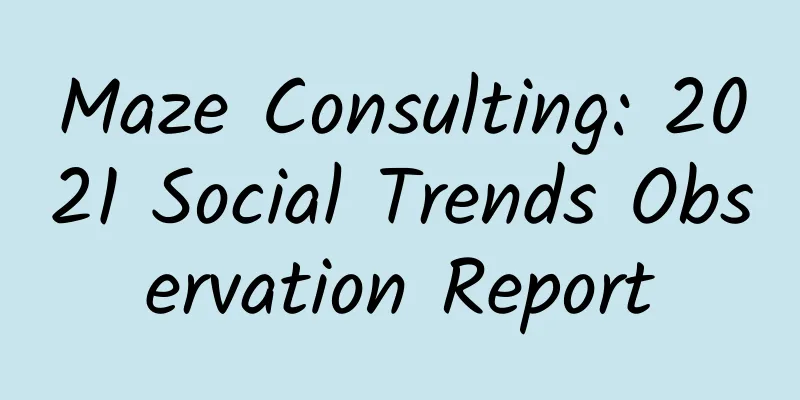Will uterine contractions be painful after childbirth?

|
After giving birth, the uterus of a pregnant woman will contract at a certain frequency, which will cause her to experience more obvious contraction pain. Don't panic, because this is normal. If a pregnant woman feels that the pain of uterine contractions is severe, she can go to the hospital for a follow-up examination to check whether her physical condition is returning to normal and to have a clearer understanding of her physical condition. The severe paroxysmal pain in the lower abdomen caused by uterine contractions in the early postpartum period is called postpartum uterine contraction pain. Postpartum uterine contraction pain usually occurs 1 to 2 days after delivery, lasts for 2 to 3 days and then disappears naturally. It is more common in multiparous women. The increased reflex secretion of oxytocin during breastfeeding can make the pain worse. The main cause of postpartum uterine contractions is uterine contractions. After delivery, the uterus gradually returns to its normal size through contraction. The pain is more intense for women who have given birth to multiple babies or those who have given birth multiple times, mainly because the uterus can only return to its normal size through strengthened contractions. Clinical symptoms Generally, the uterine pressure when not contracting is about 10 mmHg. When the uterine contraction pressure increases to greater than 25 mmHg, pregnant women will begin to feel soreness. This kind of pain is somewhat similar to the abdominal pain during menstruation. Not only does it cause discomfort in the lower abdomen, but it also hurts in the groin and even causes persistent lower back pain. In severe cases, it may be accompanied by increased vaginal discharge and vaginal bleeding. If there is abnormal discharge or bleeding, see a doctor as soon as possible. In addition to physiological spontaneous uterine contractions, some external forces can also trigger uterine contractions. Falling - When the abdomen is accidentally hit, it will not only compress the fetus in the uterus, but also reduce the blood supply in the uterus due to pain and shock. Severe impacts may even cause early placental abruption, endangering the lives of the mother and fetus. Lifting heavy objects - When lifting heavy objects or moving items, you will exert force on the waist and lower abdomen, causing abdominal compression and uterine congestion, so there is a risk of miscarriage or premature birth. If you have to (such as holding a child), it is best to squat down and bend over first, hold the child or object tightly, and then stand up and raise your waist. Common causes - uterine infection or extrauterine infection, such as urinary tract infection and vaginitis. Abnormal placenta, abnormal uterus or an enlarged uterus, such as multiple pregnancy or hydatidiform mole. Psychological care Childbirth is a normal physiological process, but also an extremely painful process with potential pathological transformation. The entire process of childbirth relies on the mother's uterine contractions to deliver the fetus and its appendages from the uterus. From the beginning of regular uterine contractions to the end of delivery, some women can gradually adapt after delivery, but most women find it difficult to adapt. In order to alleviate the pain of mothers and ensure that their physiological structure can be restored smoothly after a smooth delivery, pregnant women need to be given explanations and psychological counseling during delivery. When providing psychological care, please pay attention to the following aspects: (1) Psychological therapy can relieve uterine contraction pain, establish a good nurse-patient relationship, and make mothers feel safe and trustful. Due to China's implementation of family planning, society and families give mothers great preferential treatment and care, which to some extent causes them to be overly cautious. This requires that the midwife seeking help must not only have excellent professional and technical skills, but also have good psychological quality, a kind attitude, gentle operation, active observation of the labor process, and patient answering questions. (2) Eliminate the anxiety, tension and fear of the mother. These factors can make the mother more sensitive to pain and aggravate the pain. Tension is an important pathogenic factor clinically. The mother's mental tension can cause inhibition of the cerebral cortex through the central nervous system. Clinical observations show that 50% of pregnant women suffer from anxiety and 75% suffer from tension and fear. Therefore, more explanations should be given after delivery, telling them the characteristics of postpartum uterine contractions and introducing common nursing knowledge. |
<<: What are the effects of unmarried vaginal flatulence?
>>: Why do my arms ache during confinement?
Recommend
Can inflammation cause the vaginal wall to protrude from the vaginal opening?
Women often suffer from gynecological inflammatio...
Symptoms of urinary tract infection during pregnancy
The body of a pregnant woman is more prone to pro...
Treatment of abnormal leucorrhea, different causes and treatment methods are also different
Whether the leucorrhea is normal is a health sign...
How should postpartum hair loss be treated?
Many of our friends often experience symptoms of ...
How to get a perfect body in less than a month
"Weight Loss Hot Pot Herbal Tea, Weight Loss...
B-ultrasound right adnexal cystic mass
There are two possibilities for cystic masses in ...
How and when to store durian? What is the difference between Golden Pillow Durian and Musang King?
Golden pillow durian, Musang King, Qingni durian,...
What should I pay attention to during sex with pelvic inflammatory disease?
We know that when women have gynecological diseas...
What are the effects of eating cold food on the fetus during pregnancy?
There are many dietary taboos during pregnancy. F...
Can eating apples relieve menstrual cramps?
Dysmenorrhea is a problem that troubles many fema...
What is the fastest and most effective way to stop breastfeeding?
1. Quick weaning: If you have made adequate prepa...
Left side chest pain under armpit
The armpit area is quite special. Under normal ci...
Coughing in the spring? Experts: Beware of "asthma without wheezing"
As spring approaches, the number of patients in t...
How to treat abdominal bloating caused by ovarian cysts?
Ovarian cysts are one of the most common ovarian ...
Menstruation comes one week earlier after IUD insertion
Contraceptive measures are very important for a w...

![[Medical Q&A] Why do some lung cancer patients need PET-CT?](/upload/images/67f0e2f5225ac.webp)







